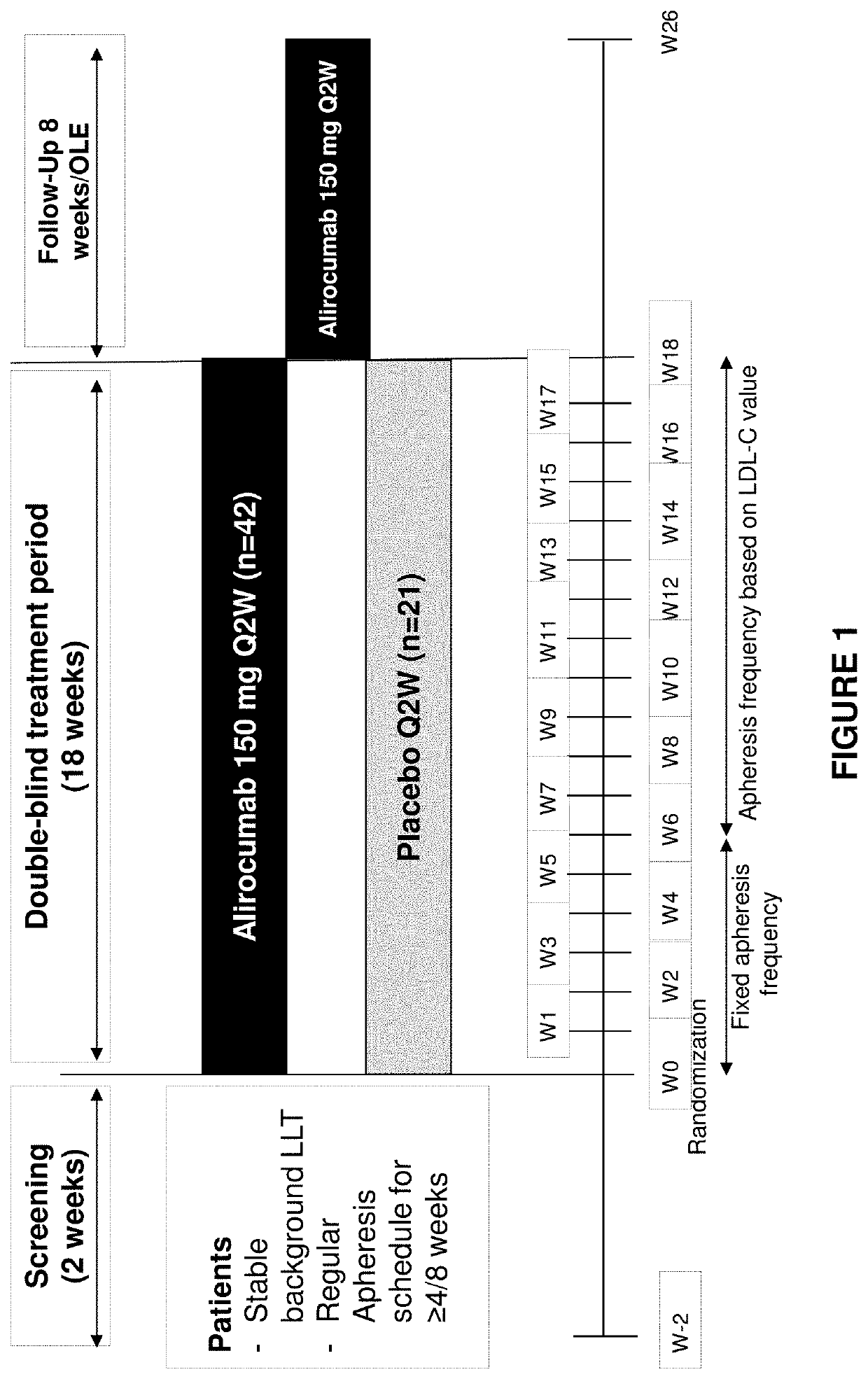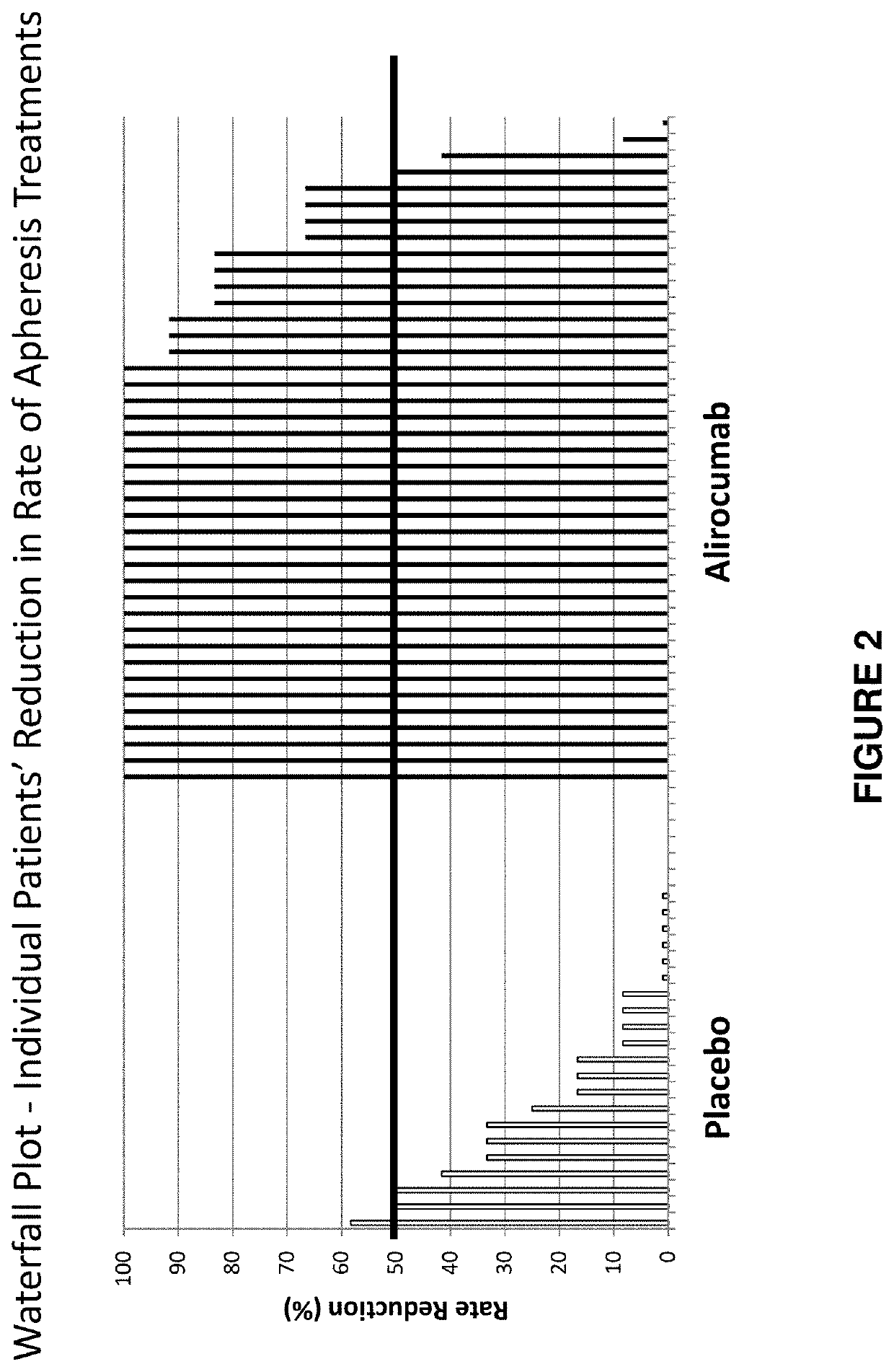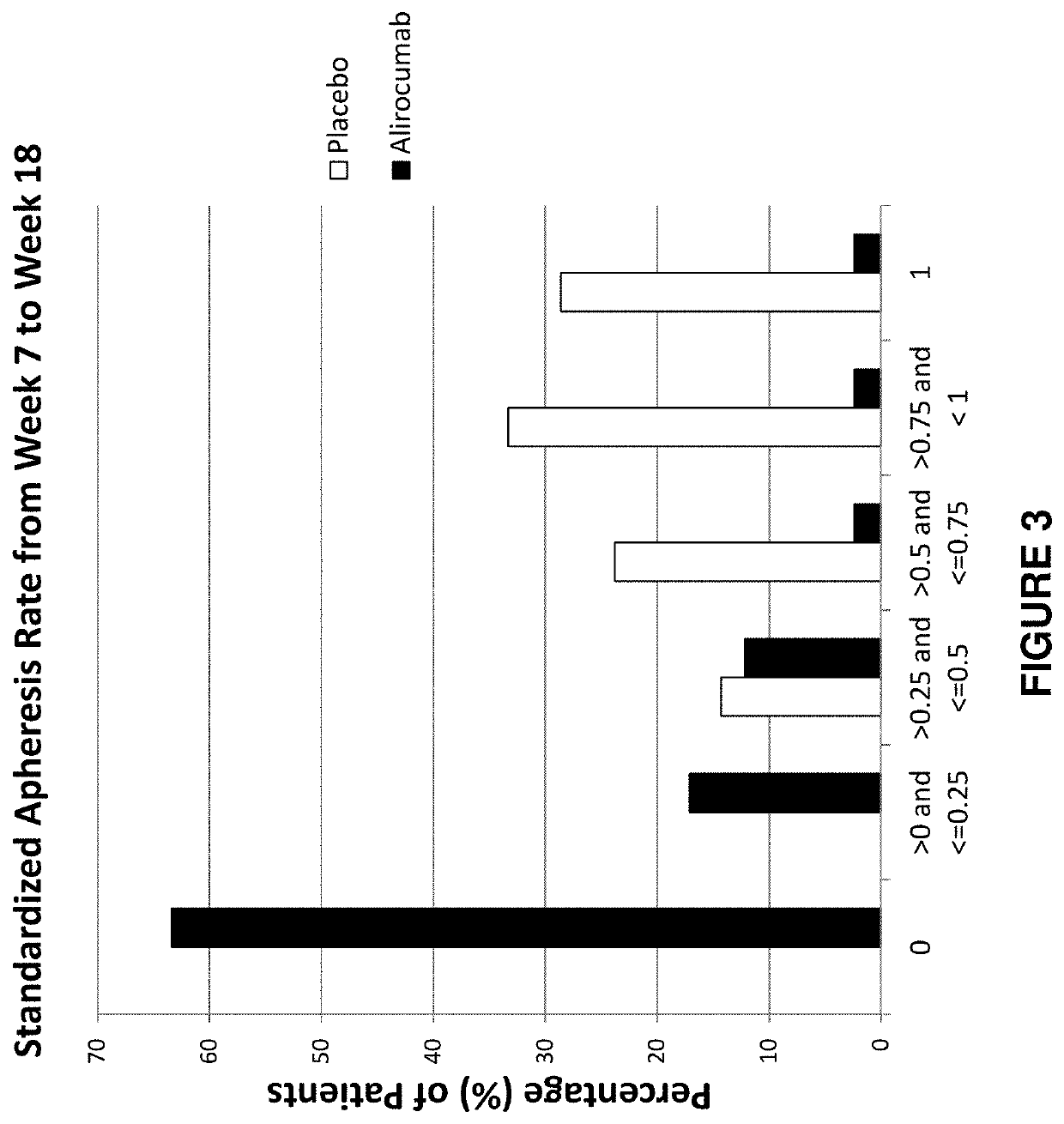Methods for reducing or eliminating the need for lipoprotein apheresis in patients with hyperlipidemia by administering alirocumab
a technology of lipoprotein apheresis and alirocumab, which is applied in the field of reducing or eliminating the need for lipoprotein apheresis in patients with hyperlipidemia, can solve the problems of limited treatment options, diverse and difficult-to-treat patients of hefh on apheresis, etc., and achieves the effect of reducing serum lipoprotein levels and eliminating or reducing the need for lipoprotein
- Summary
- Abstract
- Description
- Claims
- Application Information
AI Technical Summary
Benefits of technology
Problems solved by technology
Method used
Image
Examples
example 1
Generation of Human Antibodies to Human PCSK9
[0118]Human anti-PCSK9 antibodies were generated as described in U.S. Pat. No. 8,062,640. The exemplary PCSK9 inhibitor used in the following Example is the human anti-PCSK9 antibody designated “mAb316P,” also known as “REGN727,” or “alirocumab.” mAb316P has the following amino acid sequence characteristics: a heavy chain comprising SEQ ID NO:5 and a light chain comprising SEQ ID NO:9; a heavy chain variable region (HCVR) comprising SEQ ID NO:1 and a light chain variable domain (LCVR) comprising SEQ ID NO:6; a heavy chain complementarity determining region 1 (HCDR1) comprising SEQ ID NO:2, a HCDR2 comprising SEQ ID NO:3, a HCDR3 comprising SEQ ID NO:4, a light chain complementarity determining region 1 (LCDR1) comprising SEQ ID NO:7, a LCDR2 comprising SEQ ID NO:8 and a LCDR3 comprising SEQ ID NO:10.
example 2
A Randomized, Double-Blind, Placebo-Controlled, Parallel-Group Study to Evaluate the Efficacy and Safety of Alirocumab in Patients with Heterozygous Familial Hypercholesterolemia Undergoing Lipid Apheresis Therapy
PUM
| Property | Measurement | Unit |
|---|---|---|
| concentration | aaaaa | aaaaa |
| concentration | aaaaa | aaaaa |
| Blood pressure | aaaaa | aaaaa |
Abstract
Description
Claims
Application Information
 Login to View More
Login to View More - R&D
- Intellectual Property
- Life Sciences
- Materials
- Tech Scout
- Unparalleled Data Quality
- Higher Quality Content
- 60% Fewer Hallucinations
Browse by: Latest US Patents, China's latest patents, Technical Efficacy Thesaurus, Application Domain, Technology Topic, Popular Technical Reports.
© 2025 PatSnap. All rights reserved.Legal|Privacy policy|Modern Slavery Act Transparency Statement|Sitemap|About US| Contact US: help@patsnap.com



